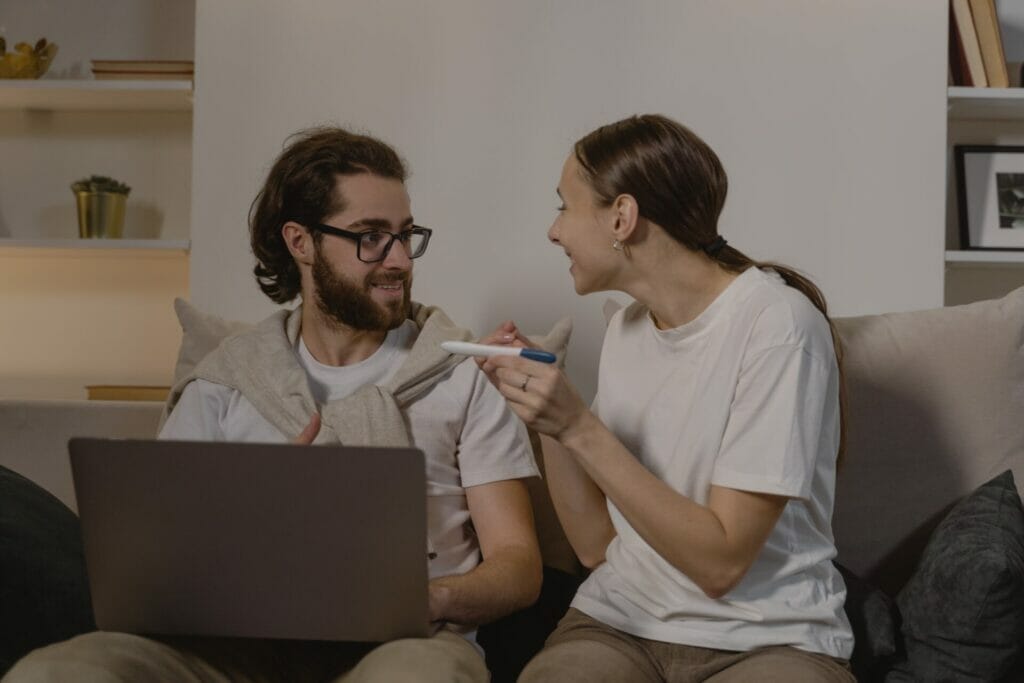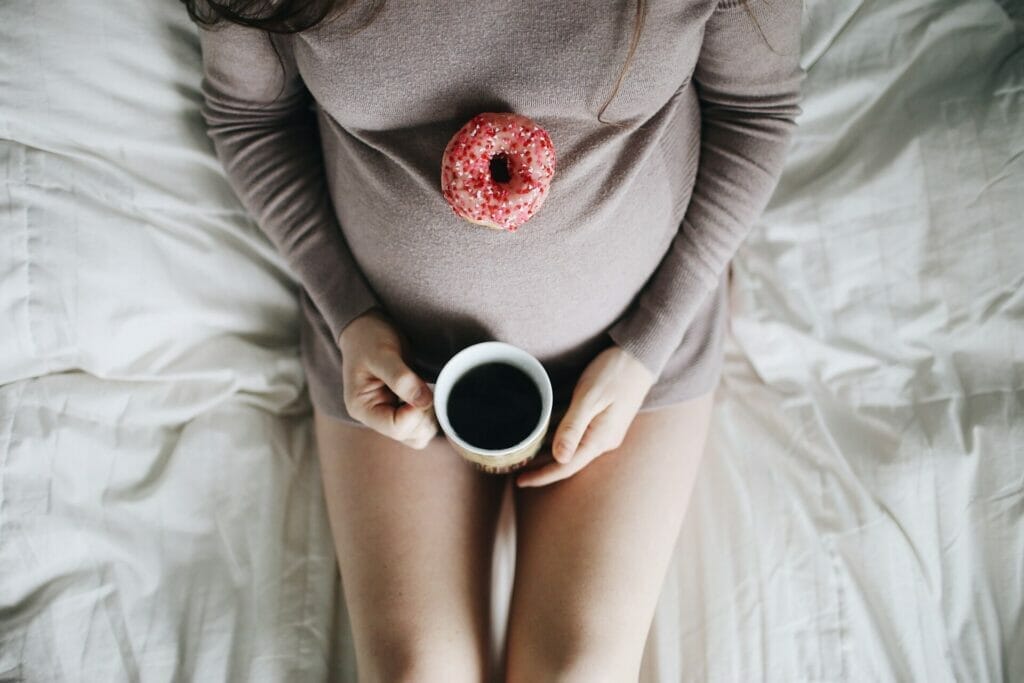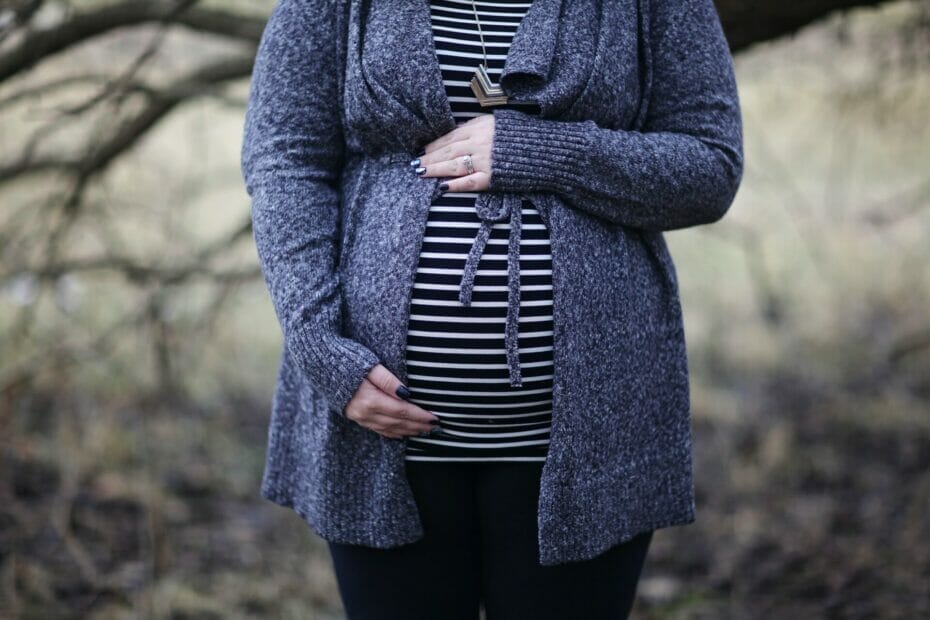Can Coffee Affect A Pregnancy Test?
Surprisingly, caffeine consumption won’t alter your HCG level, but drinking too much might have an impact on the results of your pregnancy test. This is because caffeine can make you feel dehydrated and cause you to drink extra liquids. When this happens, the liquid dilutes your urine which makes it difficult for the test to accurately detect HCG levels.
Therefore, before you take a pregnancy test, try to avoid having too many caffeinated drinks in order to ensure more accurate results. It’s also recommended that whenever possible, use your first-morning urine sample and then indulge in that cup of coffee afterward.
Is It Possible For Coffee To Cause A False Positive Pregnancy Test?
Pregnancy tests use human chorionic gonadotropin (hCG) to accurately detect a positive or negative result. While it is possible that certain things you consume can have an effect on the results of the test, drinking coffee will not cause a false positive pregnancy test result.

This is because coffee does not contain hCG and therefore is unable to disrupt the accuracy of the test. Even though caffeine may act as a diuretic, meaning it increases urination, it will not diffuse with hCG in any way – meaning coffee does not impact your pregnancy test in any way.
So if you are stressing about whether drinking cups of coffee might change your pregnancy test result, do not worry! Drinking coffee cannot cause a false positive pregnancy test.
Why Doesn’t Caffeine Cause False Positive Pregnancy Tests?
Coffee and other caffeinated beverages have long been thought to interfere with a woman’s pregnancy test results. However, research has shown that consuming caffeine does not negatively affect a pregnancy test in any way. In fact, consuming coffee or tea will not cause you to get a false positive pregnancy result.
What can potentially occur is a false negative result due to the fact that consuming caffeine triggers frequent urination. Since hCG levels in diluted urine could be lower than what is necessary for an accurate result, there is a chance of receiving an incorrect result if your pee has been excessively diluted.
So, it is recommended to avoid drinking large amounts of fluids before the testing since this could yield an inaccurate result due to the hCG concentration in the urine being too low.
What Can’t You Have Before A Pregnancy Test?
When you’re taking a pregnancy test, it’s important to know what you can and can’t have before it. It’s essential that your urine is as concentrated as possible, so be sure to avoid drinking too much water in the hours before your test.
Caffeinated beverages like coffee can also affect the accuracy of your pregnancy test, so stay away from those too. Alcohol should also be avoided, as it could potentially give false results.

What Are The Possible Causes Of A False Pregnancy Test?
False pregnancy test results can be caused by a variety of factors, ranging from testing too early to use the pregnancy test incorrectly. It’s important to understand these causes in order to gain accurate results and avoid misdiagnosis or incorrect treatment.
Incorrect HCG Levels
Incorrect HCG Levels are one of the possible causes of a false pregnancy test. The test reads the level of hCG (also known as human chorionic gonadotropin) in your system to determine if you’re pregnant. If it’s above a certain threshold, the result will be positive.
Sometimes, however, these levels can be incorrect, resulting in a false positive on the test. One reason this could occur is if it’s taken too early in the pregnancy process and the egg has yet to be successfully fertilized.
Inaccurate readings may also happen when hCG hormone levels are low due to other factors such as taking certain medications or infections. Consequently, many women take several different tests before they can confidently know their results and seek professional medical assistance.
Taking The Test At The Incorrect Time Or While Taking Certain Medications

A false-positive pregnancy test could happen if you take the test at a time that is not recommended or while taking certain medications. For example, if you don’t wait long enough to read your urine sample, this could have an impact on the accuracy of the results.
Additionally, certain medications can also interfere with test results so it’s important to be aware of any medications you are taking and when it’s best to take a pregnancy test.
Can Pregnant Women Consume Coffee?
Pregnant women should limit their caffeine consumption to 200 milligrams per day, as the American College of Obstetricians and Gynecologists have noted that too much can lead to miscarriage or low birth weight for the unborn child.

However, it is important to note that not all cups or mugs are equal when measuring caffeine intake. Caffeine levels vary between different types and brands of coffee and the size of mugs at cafes are also inconsistent. Be sure to ask how many ounces each cup contains before ordering so you can accurately track moderate caffeine consumption.
Is It Suitable For A Baby?
It’s certainly wise to moderate your caffeine intake when pregnant, and that includes your coffee. While a cup to a cup and a half of coffee (8 to 12 ounces) is generally safe for the developing baby, consuming more than 200 milligrams of caffeine per day can cause problems.
This may lead to babies being born at low weights and increases the risk of miscarriage or stillbirth. To be on the safe side, it’s best for expectant mothers to limit their daily caffeine intake and make sure that any coffee they drink is suitable for babies.
Benefits Of Coffee During Pregnancy
There are some potential benefits to drinking coffee during pregnancy, though moderation is key. If you are used to having a morning cup of coffee, cutting it out completely may not be necessary and could leave you feeling fatigued and with a headache.
Maintaining the same level of coffee consumption you’re already accustomed to can provide an energy boost without posing any risk to the baby or yourself.
Your healthcare provider should be aware if you find yourself needing an extra caffeine boost in order to get through your day-to-day activities. Unusually tiredness can often be a sign of something else going on, such as stress or iron deficiency, so make sure they understand the context in which your coffee craving exists.
When Can I Resume Drinking Coffee?
If you’ve recently had a baby and want to resume drinking coffee, make sure that the amount of caffeine is limited. For full-term newborns, It is recommended to limit your caffeine intake to no more than 400 milligrams per day. While slightly more than one cup of coffee would be considered safe, it’s best not to consume more than three small cups daily.

For preterm babies, however, the limit is 200 milligrams per day. It’s important to ask your doctor when you can drink more coffee in order to ensure that it won’t have any adverse effects on your child or yourself.
